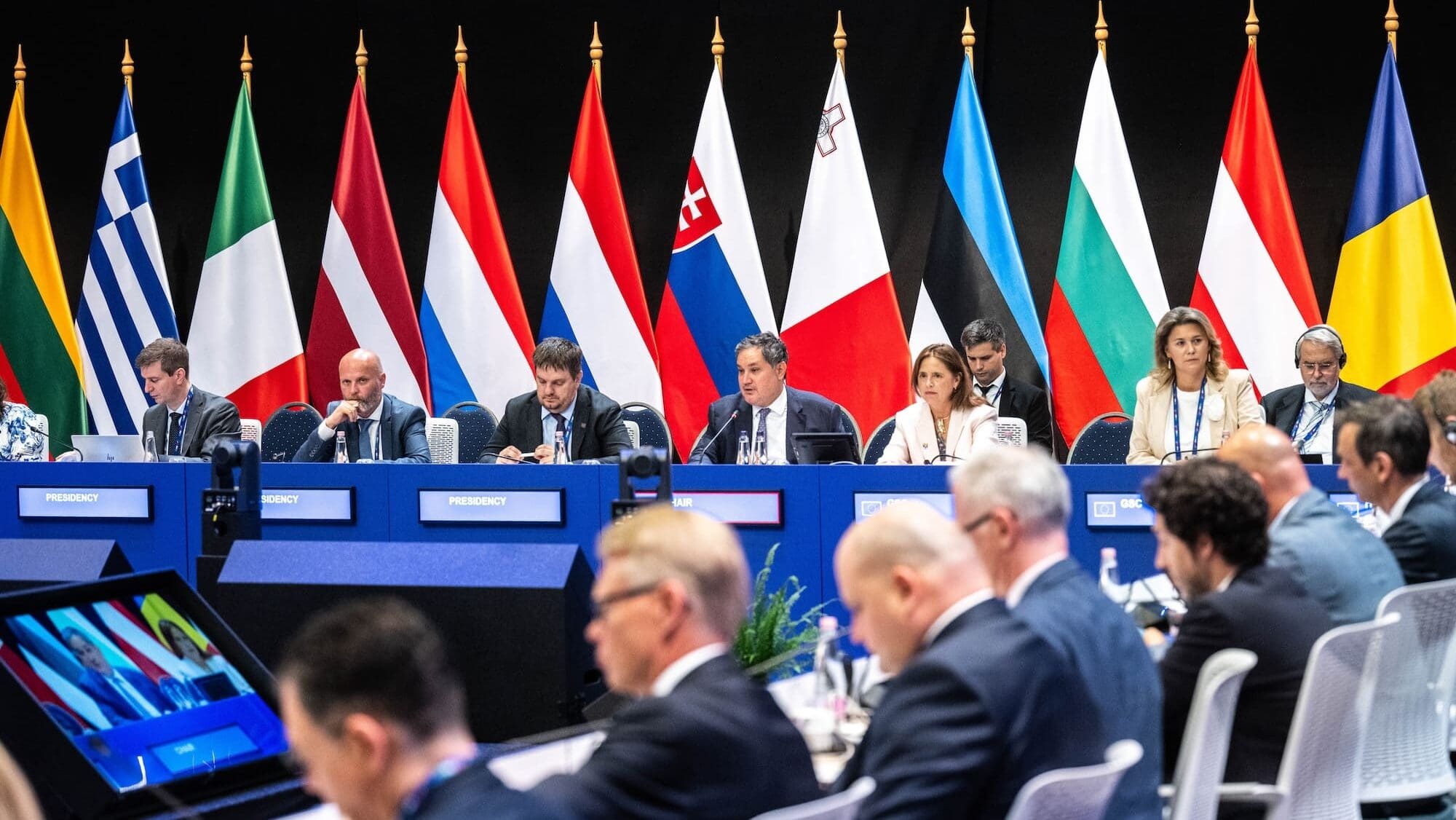
Informal competitiveness meeting organized by the EU Council’s Hungarian presidency in Budapest, July 9th.
Photo: © European Union
Hungarian Prime Minister Viktor Orbán has left EU lawmakers “fuming” with anger after his peace mission abroad included meeting world leaders on the other side of the Ukrainian conflict in Moscow and Beijing. Despite Orbán repeatedly reassuring everyone that his objective is merely to urge for de-escalation on both sides and not engage in negotiation on behalf of the other 26 EU leaders, many in Brussels are scrambling to find ways to shorten or at least boycott the EU Council’s Hungarian presidency.
On Thursday, July 11th, the EU Parliament’s Conference of Presidents (composed of Parliament President Roberta Metsola and the chairmen of the political groups) reportedly discussed ways to neutralize Orbán and the Hungarian presidency that is supposed to organize the EU’s political agenda for the next six months, even though few legal options remained now that it’s already underway.
According to sources speaking to Euractiv, the mildest option the lawmakers are considering is boycotting the events organized by the presidency in the next months. Some of them, however, are pushing for examining ways to end it prematurely and instead to bring forth the Polish presidency that’s supposed to take over in January.
The previous Belgian and Spanish presidencies were already floating the idea of stripping Hungary of its term by triggering the Article 7 procedure against the country due to its alleged rule-of-law shortcomings, but most lawmakers shied away from the so-called ‘nuclear option’ in fear of creating a dangerous precedent and very few are convinced that may still be possible now.
The easiest way to boycott a presidency is to ignore the informal ministerial meetings that are customarily held in the presidency’s country. These meetings are there to discuss problems and brainstorm policy ideas ahead of formal gatherings in Brussels so that ministers can more easily get to conclusions.
The first informal Council meeting organized by Hungary was held in Budapest on Monday and Tuesday, where the EU’s economic ministers were supposed to discuss ways to improve European competitiveness. However, over two-thirds of EU countries decided to ‘softly’ boycott the event by sending lower-ranking officials instead, while the European Commission (which was supposed to be represented by Internal Market Commissioner Thierry Breton) was missing entirely.
🇭🇺🇪🇺 Under the leadership of Minister Márton Nagy, the first council meeting of Hungary's #HU24EU presidency has begun.
— Zoltan Kovacs (@zoltanspox) July 9, 2024
📅 On Tuesday, the EU Competitiveness Council held an informal meeting in Budapest, led by Minister of National Economy Márton Nagy.
📈 The meeting aimed to… pic.twitter.com/lvFfLgbDAZ
Simultaneously, another meeting took place between the 27 EU ambassadors in Brussels on Wednesday, during which the representatives of all member states (except Slovakia) condemned Hungary for Orbán’s peace mission—although they stopped short of discussing countermeasures this time.
János Bóka, the Hungarian ambassador argued during the meeting that “the visits were strictly bilateral, only to scope out the feasibility and conditions for a ceasefire,” but his colleagues kept accusing Orbán of deliberately using the presidency as his extended platform during these talks, misrepresenting the EU as a whole.
While it’s true that, apart from the Hungarian prime minister, no other EU leader is really pushing for a quick end to the war in Ukraine, Orbán’s position should not be controversial at all, given that it is shared by the plurality in most European countries and an absolute majority in many.
Two separate polls, done by the EU’s oldest foreign policy think tank six months apart, concluded that Europeans, in general, don’t believe that the war could end without a settlement between Kyiv and Moscow, and most believe that the EU’s responsibility should be to force Kyiv to the negotiating table instead of pledging indefinite military and financial support.
EU leaders are, therefore, snubbing Orbán for doing only what their own voters expect them to do: to talk to both sides and find a way for an immediate ceasefire. Nonetheless, if the first ten days of the Hungarian EU presidency brought up so much tension already, we can only imagine how the remaining six months would go.
